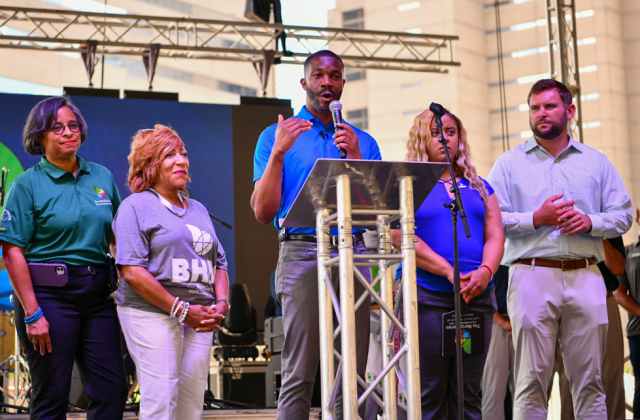
By Ryan Michaels
The Birmingham Times
One month after the conclusion of The World Games 2022 and one week after revelations of a $14 million shortfall for the Games, the Birmingham City Council on Tuesday voted 7-2 to pay $5 million to help reduce the shortfall, but only after councilors shared concerns in a debate on the matter that lasted more than three hours.
Councilors Valerie Abbott and Carol Clarke voted no on the spending.
“It is sad to me that this dark cloud has come over and rained on our parade, when we were joyous at first and then our joy was diminished a little bit when we found out we were $15 million in the hole,” Abbott said. “I guess my biggest concern is the fact that the City Council . . . was not informed that there were any problems until after it was all over . . . And there are people in this City Hall building right here, who I am absolutely certain knew, and did not share the information, and certainly The World Games…y’all knew,” said Abbott, directing her comments to members of the TWG’s Birmingham Organizing Committee (BOC) who were in the Council Chambers.
Nick Sellers, TWG 2022 CEO, who was at the meeting along with Jonathan Porter, chairman of the board for the BOC; Jay Kasten, TWG COO; and Kathy Boswell, TWG vice president of community engagement, apologized to Abbott and the rest of the City Council.
“We should have—I should have personally, as the CEO—communicated more effectively, directly to you during these times,” he said.
The World Games, which took place July 7-17, fell far short of its revenue goals. Though the event ended up costing roughly $65.1 million — which Sellers admitted was close to $10 million less than initially expected — it only generated $51 million in revenue leaving a $14.1 million deficit and many local vendors unpaid.
Councilor Clinton Woods agreed with Abbott that the council was not shared the most accurate information.
“We’re out there on a daily and weekly basis telling residents what we believe is the truth,” he said. “. . . In order to most effectively serve this city, the residents have to have faith in us . . . They’re going to see it as, ‘You should have known.’”
Clarke said more should be done to examine “all the things that did not go well and we need to do a better job of examination how some of the people [may have been] were harmed through this effort.”
Many small businesses and vendors were among those who were still waiting to be fully paid at the end of the games.
Mayor Randall Woodfin said he understands how the council feels. “I know each of you enough to know this sucks. I know you don’t have a desire to…give this contractual service of $5 million toward the organizing committee. I know that. I know that because I feel the same way you feel,” Woodfin said.
The $5 million is expected to come out of a remaining $13 million in surplus tax revenues, according to the city.
In exchange for the money, Sellers said the Games’ organizing committee promised to provide “data and professional consulting services … to better assist the city in hosting future large-scale international sports and entertainment events,” including a database of sponsors, volunteers and corporate donors and training on security protocols.




